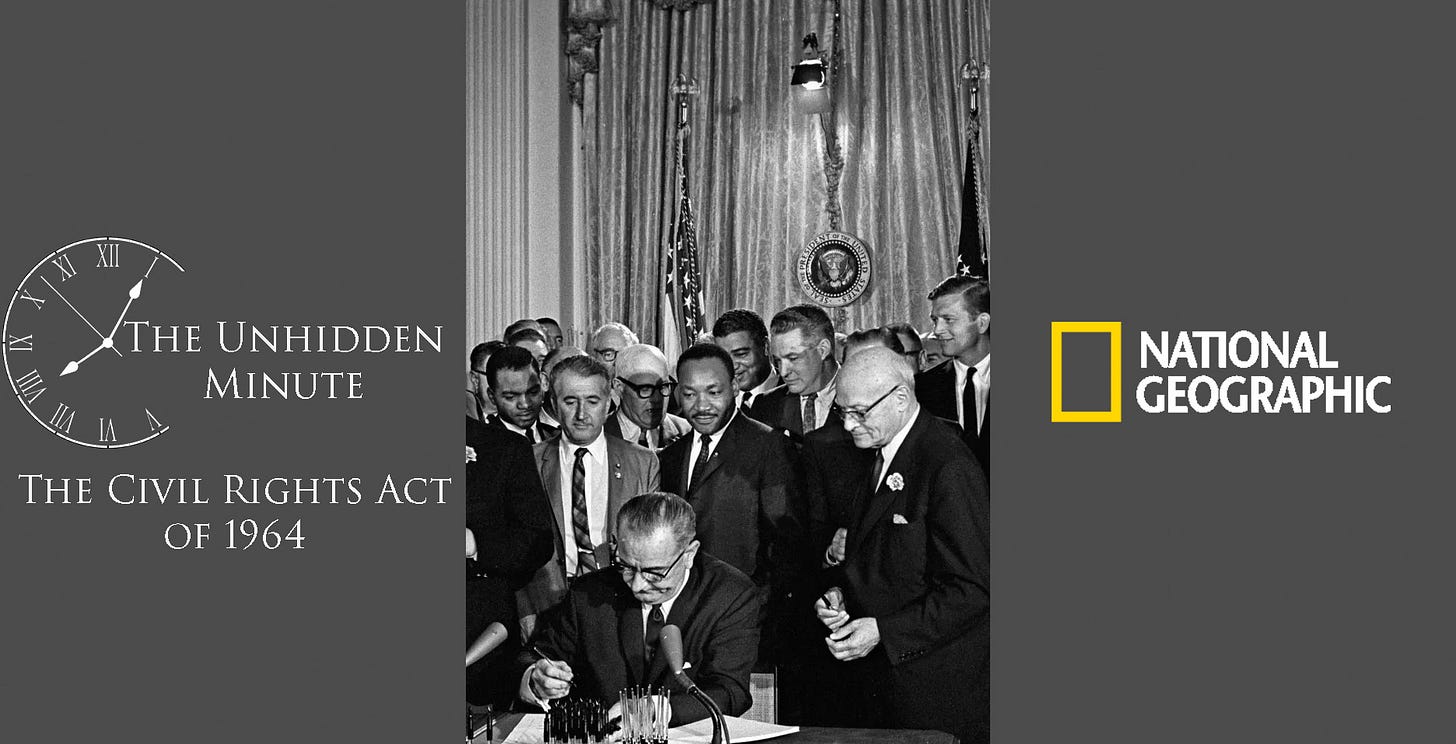The Civil Rights Act of 1964 was a landmark piece of legislation in the United States that aimed to address racial discrimination and segregation. Signed into law by President Lyndon B. Johnson on July 2, 1964, the act prohibited discrimination based on race, color, religion, sex, or national origin in public accommodations, employment, and federally funded programs.
The act effectively dismantled Jim Crow segregation laws that had enforced racial segregation and discrimination in public facilities, such as schools, restaurants, and hotels. It also empowered the federal government to enforce desegregation and take legal action against discriminatory practices.
The Civil Rights Act of 1964 was a significant victory for the Civil Rights Movement and marked a turning point in the fight for racial equality in America. Its passage paved the way for subsequent civil rights legislation, including the Voting Rights Act of 1965.
The Joy Trip Project celebrates the enduring legacy of Black American History. The Unhidden Minute is part of the Unhidden Podcast Project supported through a National Geographic Explorer Grant from the National Geographic Society, with the cooperation of the National Park Service. This series elevates the untold stories of Black American historical figures, events and cultural contributions.
#unhiddenblackhistory #NationalParkService #yourparkstory #NationalGeographic #unhiddenminute














Share this post